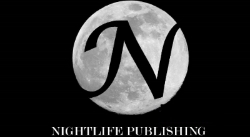As a writer
of crime and spy novels, I often think about the impact of deception in our
lives. Recent events offer a lot of material to consider:
- Major media is consistently manipulated by government, corporations and powerful individuals
- False identities like catfish and sock puppets proliferate online
- Statistics and “scientific” studies are biased to serve narrow political or economic interests
- “Independent” bloggers are bought and controlled by sponsors
- The Met even had an exhibit on the doctoring of photographs that took place long before Photoshop was invented, destroying the historical myth that “the camera doesn’t lie.”
All this leads to the central
philosophical question; what is real?
How do I know that the French really invaded Mali, or why? How do I know how
many troops we have in Afghanistan or how many guns are actually in America?
Does anyone really know? Can they prove it?
The lack of knowable facts isn’t
limited to what we learn from traditional and social media. There are plenty of instances in
your own everyday life that are more appearance than fact. For example, let’s
say I go to a bar and start a conversation with an attractive woman. At some point,
she mentions that she has a boyfriend. A gentleman even comes up and is
introduced as said boyfriend.
Now, under
normal circumstances this seems perfectly reasonable, but in espionage
language, what I just found out is referred to as single source information. That means that during this brief exchange,
I have very little independent confirmation on the reality of this woman’s
relationship status. It might sound farfetched to think this is anything other
than what it seems, but a deception like this isn’t just the province of spies
and criminals. My female friends have pretended that I was their boyfriend,
boss, cousin or other short term role with very little preparation on my part
or scrutiny on the part of our audience. Appearances often carry much more weight
than reality, online and off.
Fiction, as
opposed to news, is also by definition not real. But it has two qualities that
often make it more honest. First, while fiction attempts to be realistic to one
degree or another, it does not pretend to depict objective reality in a way
that manipulates us with a false sense of singular importance. Second, if it is
done well, fiction captures real emotion. It helps bring meaning to our lives
and connects us to our shared humanity. It
is often the power of fiction that exposes the human condition in ways that are
stronger than whatever we are told is real.
I have come
to the obvious conclusion that while facts are more real than fiction,
verifying facts isn’t possible in most cases. The willing suspension of
disbelief that we need to enjoy fiction needs to be balanced with the unwilling
suspension of belief when we encounter news or alleged fact. In this life, what we ultimately believe about
our world and ourselves is just as likely to come from fiction as from fact. As
a writer and storyteller, I plan to keep this power in mind as I pursue my craft.
Have fun.
G
























